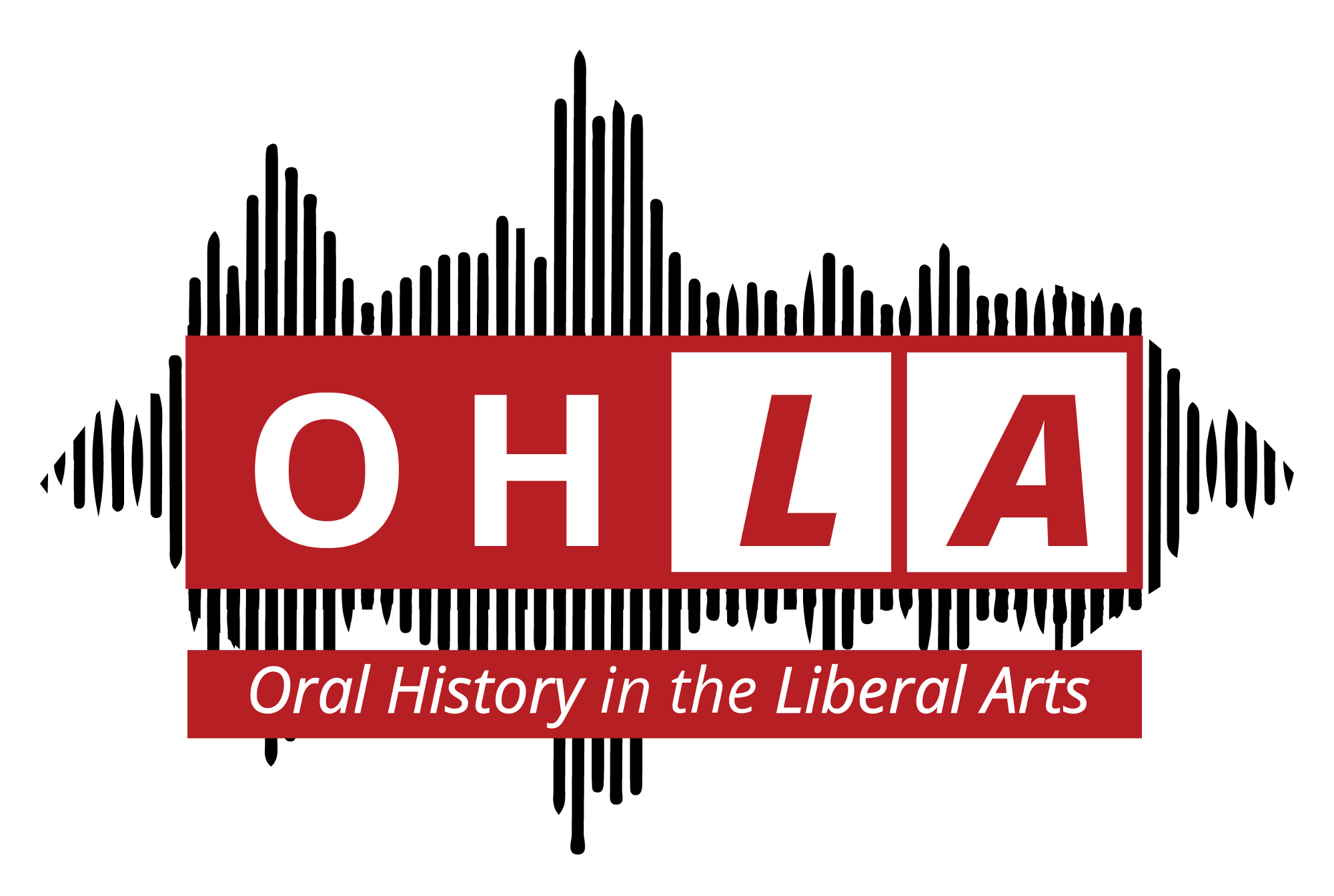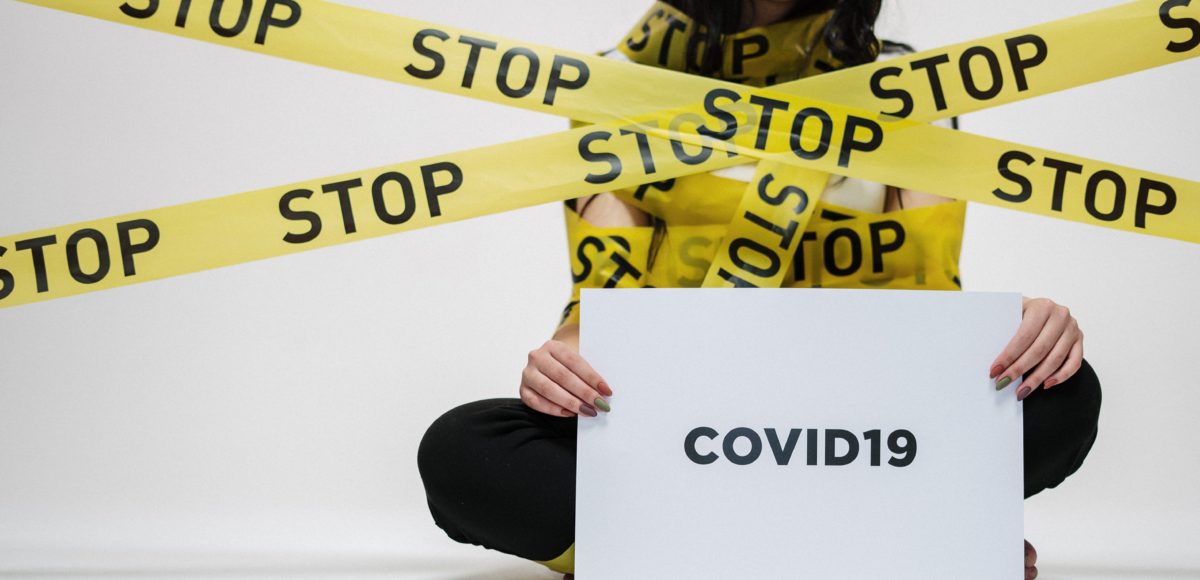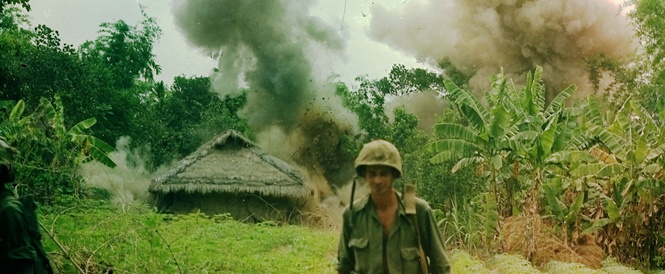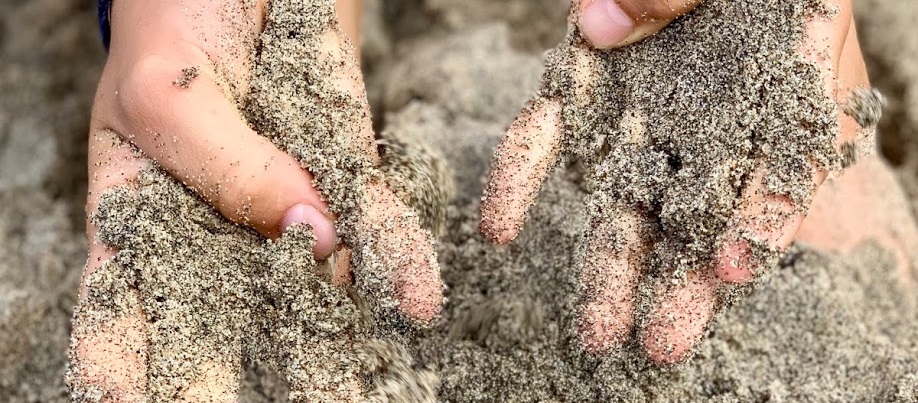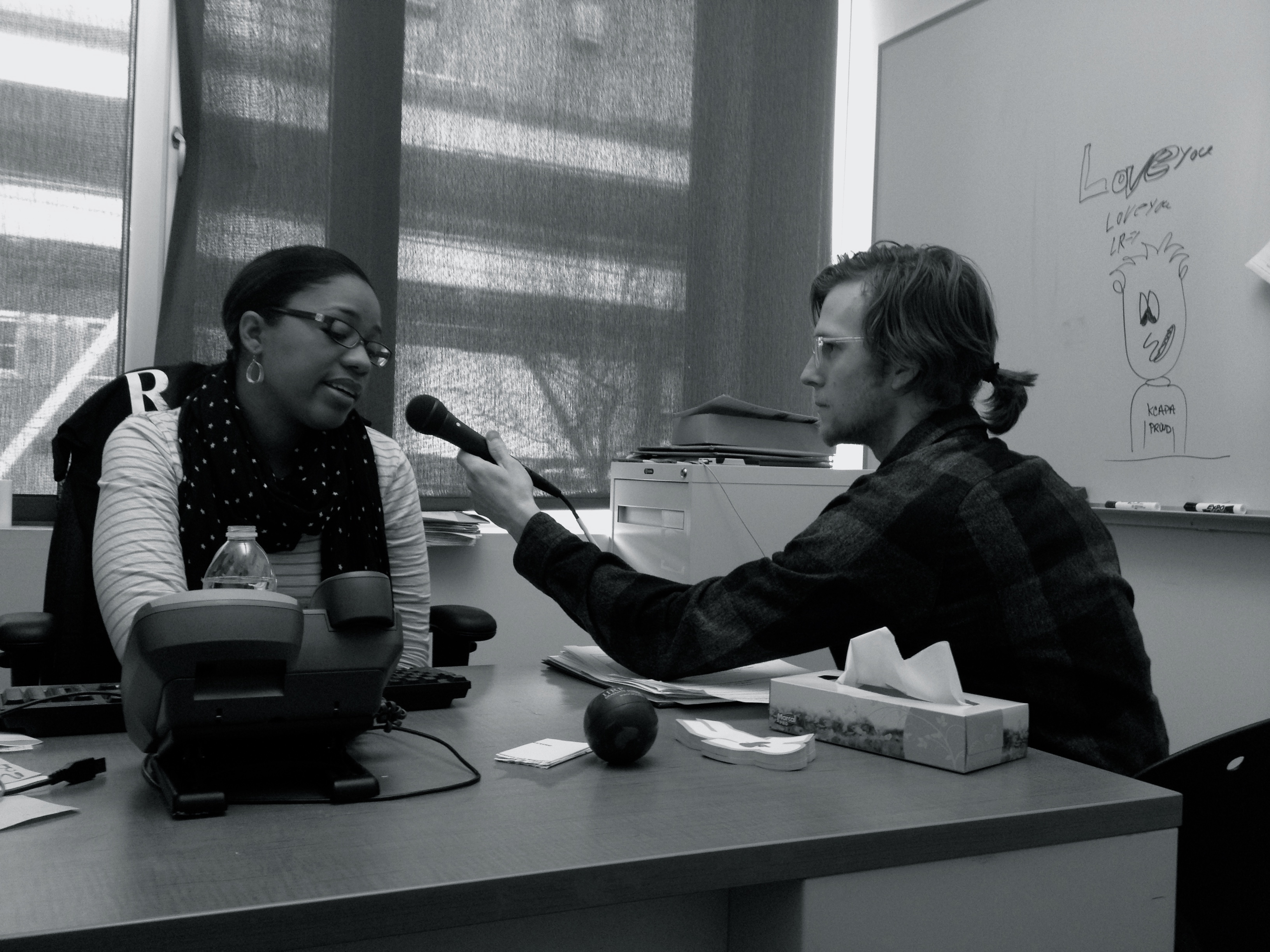Co-authors: Austin Bryant and Ian Little
“How a Pandemic Crisis Changes Oral History”
The last day of class before spring break at Wabash College was unusually warm for the first week of March in Indiana. After leaving my final class with stern and likely unheeded directions to students about staying focused, making smart choices, and using the break to catch up on class readings, I dragged myself to my car for the long drive home and my own much needed break. The coronavirus outbreak was just becoming a topic of concern in the local news media and by the time I boarded a plane to Colorado for a research trip, sans mask, it had become an annoyingly persistent buzz of background noise. One week later I returned to Indianapolis amidst increasing concerns about “spread” and infection. Stories of the painful and lonely deaths of its first known victims only fueled the paranoia and fear about “catching” the virus.
As with many institutions of higher education, Wabash College was largely unprepared for Covid-19 and the necessarily quick transition to online learning proved difficult for many faculty used to teaching students in-person through interactive classroom discussions. I was particularly concerned about how online education would impact the students in my oral history class. For 8 weeks students in HIS240: Vietnam War Stories, had learned about the practice and methodology of oral history, its value to the profession, and the importance of documenting the voices of those often unheard. They had learned to observe body language, to understand cadence, and to be aware of trauma in their narrators. In-person practice interviews had introduced them to the importance of navigating physical space. In the week before spring break, students were excited to finally put their book knowledge and their peer practice to the test on real narrators whose stories they were eager to hear.
But now, everything had changed, and all their training was now forced into the virtual world. With the help of Wabash College’s amazingly efficient and skilled Research and Instruction Librarian, Zoe Mayhook, I tried out different class and interview platforms: Skype, Canvas, Youtube, Instagram Live, Facetime and Zoom. After eliminating those with serious security concerns and accessibility problems, I joined the rest of higher education and invested in Zoom which thankfully worked well for class. Students quickly adapted. They prepared for their final interviews through practice Zoom sessions with Emeritus Faculty, Tobey Herzog, a Vietnam War veteran, and Warren Rosenberg, a conscientious objector of the war. They became comfortable with the technology—its benefits and its glitches, including an unforeseen and unpredictable transmission delay. Now the challenge was to make sure the veterans, who had varying levels of computer access and literacy, had the ability to use the technology. In one case this required a coordinated Wabash College community effort for a sanitized delivery to a veteran’s home of a school computer with a camera and a microphone. We also prepared a backup plan. In the case of a Zoom or recording failure, students were able to employ Rev Call Recorder to continue recording the interview. They were now ready to go!
Ultimately all of the interviews were a success! Despite a few initial bumps—a video camera that needed to be turned on, the installation of Zoom, connection issues, and the unavoidable awkwardness of the long pauses and interruptions that resulted from the transmission delays— the students carefully guided their narrators through their Vietnam War/era experiences. As interviewers, the students were confident, engaged, and comfortable and it paid off in the stories they procured. Ironically, it appeared that for some students, the online format offered a safer and less stressful space for the interview. The veterans too, were pleased with the experience and were excited to share their stories with Wabash students. Unfortunately, because of the coronavirus, the class was unable to present the final oral history project to the veterans or the Wabash/Crawfordsville community. Students were able to share the website with each veteran individually however and mailed them digital copies of their interviews and transcriptions. Even though the online transition proved challenging for this course, it offered a critical experience about the importance of oral history and the ways technology can benefit the process. It has, in fact, made me consider how oral history and digital history necessarily interact in the twenty-first century and the benefits and consequences of that relationship. It is my hope that we can continue this course in the future and continue to build our Vietnam War Stories archive.
Austin Bryant, Junior (History Major)
As a class we were all anxious but ready to embark
on the veteran interviews we had prepared so much for. I felt the interview my partner and I did went incredibly well. Our narrator was very open and excited to share his story. I believe some of excitement from all the veterans came from the desire to leave an impact on us as young men who are now the same ages they were when they served. I also feel that they wanted to leave a record of their experiences. These men endured the hell of the Vietnam War and came out on the other side willing to share their stories with a smile in order to help future generations, and that they did.
I believe my fellow classmates would agree that we got so much out of this experience. All of our interviews went extremely well and while we may have had a few hiccups along the way— lagging video time on Zoom that caused some confusion and anxiety about the potential for the recording of the interview to fail—we persevered and ultimately succeeded. Zoom was not even remotely ideal for an oral history interview as the preference would be for the interview to occur face-to-face allowing the interviewer and narrator to establish a bond and connection while sharing the emotional stories. Without the personal interaction, the interview experience was not the same. In February, in preparation for our interviews our class observed a live interview with a local Iraq War veteran and we experienced the raw emotion from that interview. Trying to replicate such emotion and feelings over Zoom was something that could not be done. Still, my partner and I took the same approach to our interview as if it was in-person. We structured our questions the same why with the addition of a few questions about the coronavirus pandemic and how our veteran was dealing with the situation. While not ideal however, we made do with what we had and were able to complete the interviews and preserve the stories of these incredible men. Even with the challenges of technology, the experience was still incredible, and I think the veterans would agree.
This semester was one with many challenges in truly unprecedented times but in the end this class was the best I class I have ever taken. Learning about something we all truly cared about was a life altering experience for all of us. I gained some knowledge about being a man from the interview and also the benefits of having a good attitude. Their stories will forever be preserved into the Wabash College Archives, and for the foreseeable future will be on a website that my fellow classmates created. My sincere hope is that schools across America continue their oral history programs so that for many years to come students can enjoy the experience oral history provides.
Ian Little, Senior (Theatre Major)
Throughout the semester, our course, Vietnam War Stories, focused on the critical importance of oral history as a field of contemporary historical study dedicated to the meaning and impact of historical events or time periods on people. In our previous article, we discussed the academic approach of the first half of the class and the discussion-based readings and considered how they shaped our understanding of oral history at an all-male institution. However, the first week of March marked a transition in the course from academic discussions to practical application including a number of practice sessions conducting interviews with a conscientious objector and Vietnam War veteran. Despite all of the academic preparation leading up to the transition, most of us had been looking forward to our interviews since observing Oral Historian Dr. Martha Norkunas, from Middle Tennessee State University, interview a local Iraq War veteran. While the academic pieces of the course had prepared us for the interview’s structure, actually sitting in a room with a narrator and intently listening and exploring his stories felt like unknown territory. Unbeknownst to us at the time however, the first week of March would be the last time our class would meet in person.
As our spring break began in the second week of March, we were notified of the full campus closure of Wabash College due to the rapidly spreading coronavirus. With students now located throughout the country, our class had to face the tough decision and the logistics of how to continue a course that had prepared us to interview in-person and that taught us how to use being in the same physical space as a narrator to be better listeners. All of our passion and excitement seemed to fade as the goal that we spent half a semester preparing for now reshaped itself into a shadow of what we expected. The sections of the course that taught us to observe and interpret body language were now cut in half, applying only to what a webcam could capture. Our recording equipment also changed, now reduced to online applications that came complete with concerns about major security breaches and the likelihood of technological malfunction. Even then, our ability to conduct a successful interview was fully dependent on reaching out to, in some cases, technologically illiterate Vietnam veterans who may not have the application or capabilities to use the online program.
Despite these roadblocks, Professor Thomas, the veterans, and our class managed to create a path to successfully interview three Vietnam War and war era veterans. We switched our class sessions to Zoom which allowed us to welcome trauma expert and Wabash alumnus, Dr. Kevin Henze, to speak about how his field of psychology and veteran’s addiction counseling related to our own studies. Dr. Henze expanded our understanding of how the veterans may feel vulnerable in our interviews, emphasizing the need to be aware of how we present our questions. Our practice interviews which would previously have been recorded and then critiqued could now be viewed Live as we muted our cameras and mics and observed in real time. This was a benefit as the time spent reviewing the interviews was drastically reduced. By the time we did our real interviews, we were accustomed to Zoom, rather than taking the chance on unfamiliar technology that could have resulted in a loss of important oral histories.
The coronavirus pandemic changed how we conducted and interacted with the course, but it also changed our understanding of the field of Oral History. We now realize that in this age of technology and communication, physical distance does not necessarily limit the scope of oral history. As long as both the interviewer and narrator have devices with video and audio capabilities, there is a chance for a successful oral history interview. While I will concede that the person-to-person interview enhances the overall interview experience, the accessibility that technology provides cannot be dismissed. The interview can be conducted from the comfort of home which allows both that narrator and the interviewer to let their emotional guards down in ways that an in-person interview cannot. Additionally, students who may have been previously prevented from pursuing their oral history projects because of the limitations of travel to other countries and cities, are now discovering that these projects can be done without worry of a financial burden.
The pandemic also reveals the importance of conducting oral histories . As people worldwide experience the isolation of a global quarantine, our human need to be heard and acknowledged, and to interact with other people can be consumed by our loneliness. A lovely paradox now exists— a communal empathy of loneliness. Oral history fills the need for our stories to be heard and validated by others and technology makes this easier. As the state of the U.S. healthcare system and government are revealed through this crisis, Oral History offers a chance to archive the voices of everyday people and heroes, and not just the government officials and celebrities that often make the headlines, the doctors, nurses, families, prisoners, and other citizens and non-citizens who are being affected daily across the spectrums of politics, class, race, and gender. As the global death toll rises, affecting the older members of society, the need for oral history also rises to capture those stories that may never have the chance to be told, the people whose voices are not often heard, and the memories of the dying. The coronavirus pandemic has exposed this morbid fact and the importance of hearing these stories.
In the final weeks of class, we conducted our final oral histories with the Vietnam and Vietnam era veterans. The experience did not feel or happen like what I expected coming into the course. Our interview felt cathartic. It was fulfilling to finally finish the interview and achieve our main goal. We ended our interview with a smiling Vietnam veteran who thanked us for listening before offering us dinner “once this whole thing clears up.” The pandemic will clear up, but the impact it left, the stories it created and those that were lost as a result, the communal loneliness that persists, will remain in our minds and in our history.
